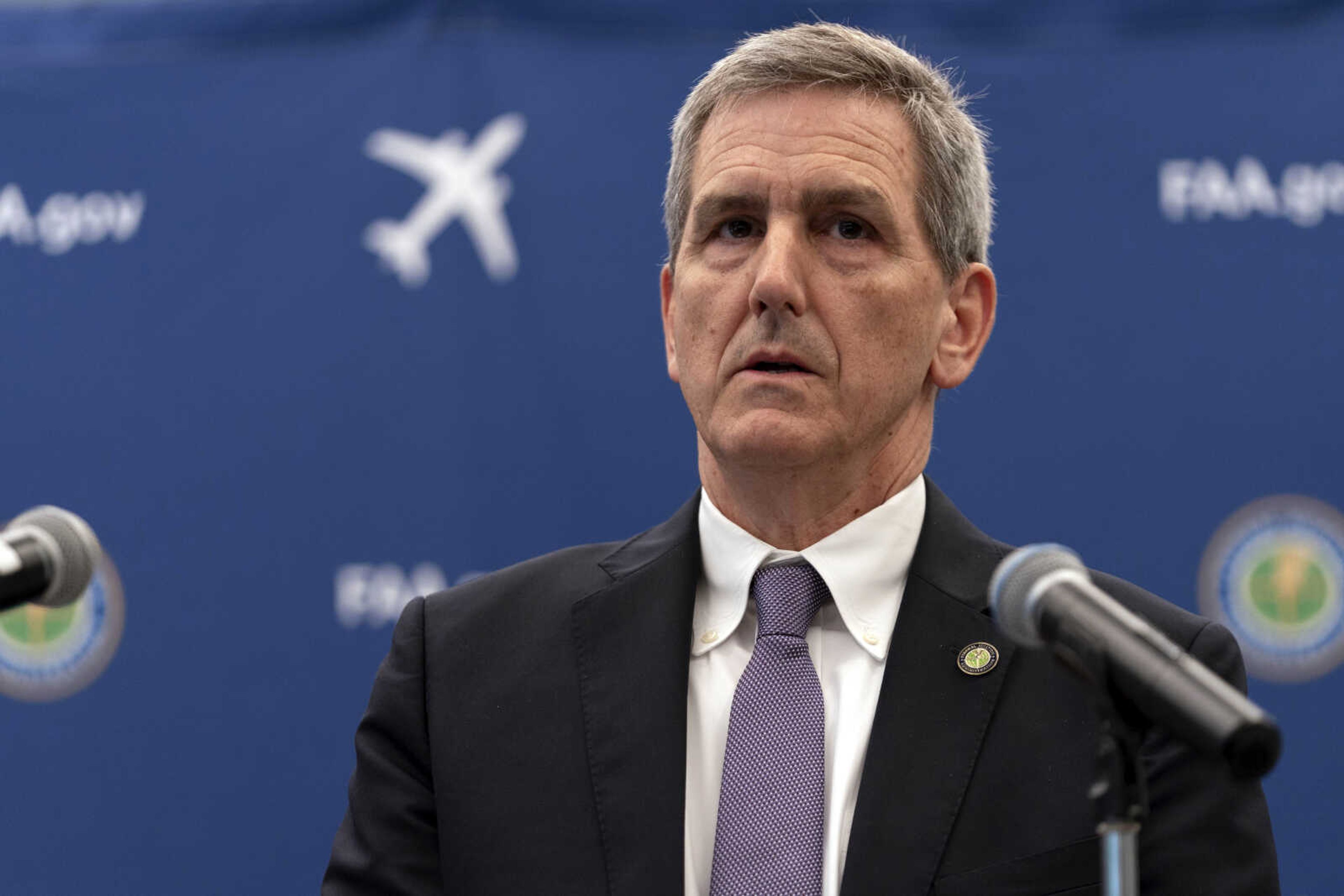Boeing tells federal regulators how it plans to fix aircraft safety, quality problems
Boeing officials explained their plan to improve manufacturing quality and safety during a three-hour meeting Thursday with federal officials, who will continue restrictions they placed on the company after one of its jetliners suffered a blowout of a fuselage panel in January. ...
Boeing officials explained their plan to improve manufacturing quality and safety during a three-hour meeting Thursday with federal officials, who will continue restrictions they placed on the company after one of its jetliners suffered a blowout of a fuselage panel in January.
Federal Aviation Administration chief Mike Whitaker said the plan is comprehensive and includes encouraging Boeing employees to speak up about safety concerns.
“This is a guide for a new way for Boeing to do business.” Whitaker told reporters after the meeting. ”Boeing has laid out their road map, and now they need to execute.”
Boeing released an 11-page summary of its “Product Safety and Quality Plan", which described steps the company is taking, including increased inspections and tighter controls over suppliers. It also says how Boeing will measure its improvement.
CEO David Calhoun, who announced after the Jan. 5 blowout during an Alaska Airlines flight that he would step down at the end of the year, said the document was crafted from comments by employees, the FAA, airlines and independent experts.
“Many of these actions are underway, and our team is committed to executing on each element of the plan,” Calhoun said in a statement. “It is through this continuous learning and improvement process that our industry has made commercial aviation the safest mode of transportation. The actions we are taking today will further strengthen that foundation.”
Stephanie Pope, a possible successor to Calhoun who was recently promoted to chief operating officer and chief executive of Boeing’s commercial airplanes division, said the plan was designed to improve employee training, simplify manufacturing, "eliminate defects at the source, and elevate our safety and quality culture.”
Nobody was hurt during the Jan. 5 blowout of a door plug on a relatively new Alaska Airlines Boeing 737 Max 9 as it flew above Oregon. Accident investigators determined that bolts used to help secure the panel were missing after a repair job in a Boeing factory.
The mishap further battered Boeing’s reputation, led to multiple civil and criminal investigations, and prompted Whitaker to order the report that Boeing delivered Thursday.
Whitaker said he wanted Boeing to develop a comprehensive, detailed plan that improves manufacturing process, quality and safety management, and encourages employees to raise concerns about safety.
“Those are all elements of the plan,” Whitaker said. He added that Boeing had accepted all the safety recommendations made earlier this year by a panel of independent safety experts.
Still, Whitaker said, the FAA will continue to cap production of the 737 Max, Boeing’s best-selling plane, and to insist on approving each plane that comes off the assembly line. He said the FAA also will maintain a “significant increase” in safety inspectors at plants run by Boeing and its key supplier, Spirit AeroSystems.
Boeing’s recent problems could expose it to criminal prosecution related to the deadly crashes of two Max jetliners in 2018 and 2019. The Justice Department said two weeks ago that Boeing violated terms of a 2021 settlement that allowed it to avoid prosecution for fraud. The charge was based on the company allegedly deceiving regulators about a flight-control system that was implicated in the crashes.
Whistleblowers have accused the company of taking shortcuts that endanger passengers, a claim Boeing disputes. A panel convened by the FAA prior to the blowout found shortcomings in the aircraft maker’s safety culture.
Most of the recent problems have been related to the Max, however Boeing and Spirit AeroSystems have also struggled with manufacturing flaws on a larger plane, the 787 Dreamliner. Boeing has suffered setbacks on other programs including its Starliner space capsule, a military refueling tanker, and new Air Force One presidential jets.
Boeing officials have vowed to regain the trust of regulators and the flying public. Boeing has fallen behind rival Airbus, and production setbacks have hurt the company’s ability to generate cash.
The company says it is promoting a positive safety culture, improving worker training, reducing “traveled work” — assembly tasks that are done out of their proper chronological order — and keeping closer tabs on Spirit AeroSystems, including preventing the supplier from shipping defective fuselages to Boeing.
The plane that suffered the door-plug blowout was being repaired because it had damaged rivets when it arrived at a Boeing factory from Spirit.
Connect with the Southeast Missourian Newsroom:
For corrections to this story or other insights for the editor, click here. To submit a letter to the editor, click here. To learn about the Southeast Missourian’s AI Policy, click here.









